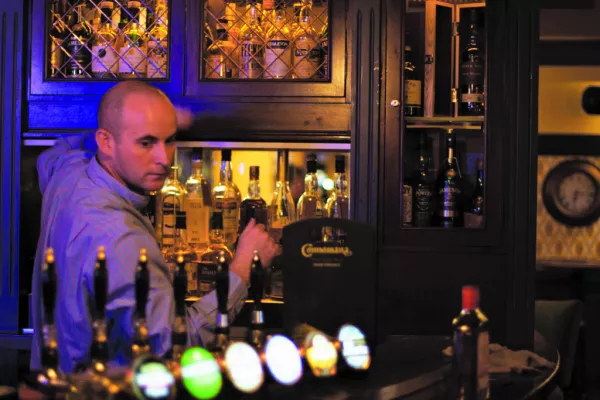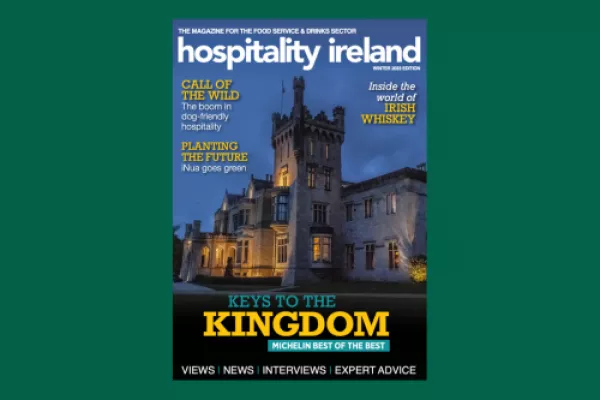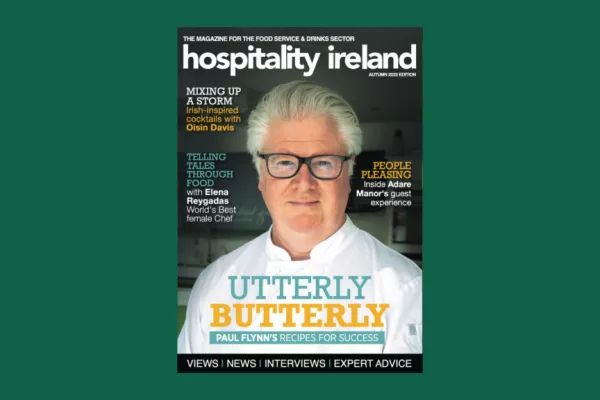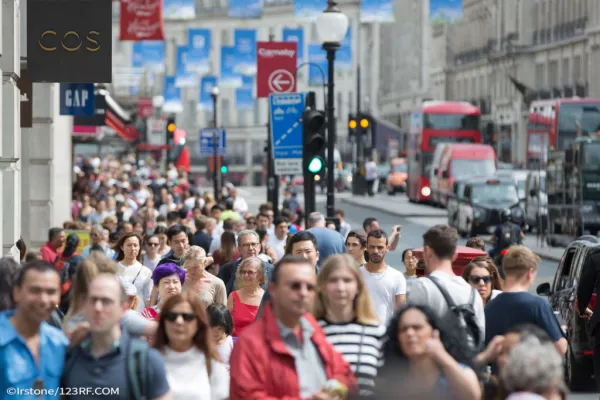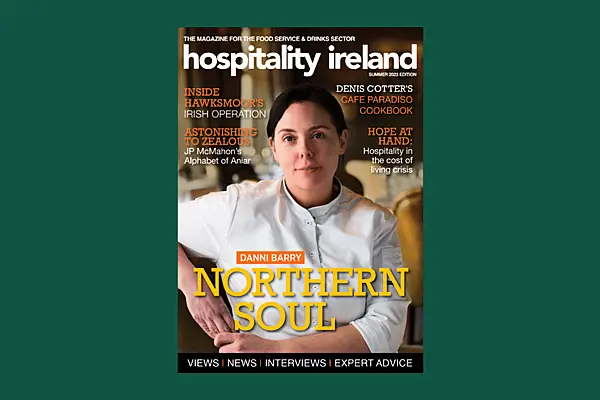After several years of hardship, there appears to be light at the end of the tunnel for Ireland’s pubs. John Golden takes a look at the major issues affecting pubs, what they have done to survive, and what the future holds for them.
The impact of the recession was felt by almost every person, family and business in Ireland, perhaps none more so than the pub trade. In those years, it was not an uncommon sight to see a place - even one that was once a hive of activity most nights of the week – boarded up.
Between 2007 and 2012, some 959 pubs across the country closed their doors, resulting in a 17-per-cent drop in employment in the sector. Conversely, seeing new pubs open was a rarity, and publicans were told that they were either geniuses or madmen to open in a declining market. Attitudes were changing.
Publicans often speak of the ‘lost generation’ in Ireland when speaking about their clientele. The modus operandi for 18- to 30-year-olds was to forgo the pub visit and instead drink at home, followed by the late bar or nightclub. This practice was facilitated by supermarkets and off-licences lowering the price of alcohol to bargain- basement levels. The disparity of prices became too much to ignore, at a time when disposable income was at a premium.
As has been much reported this year, the hospitality sector has picked up, and some businesses are starting to flourish. Some of those madmen now look like geniuses. Pubs are starting to record profits and new establishments are appearing more frequently. The turnaround did not come easily, however, and for most pubs in Ireland, the struggle is far from over.
The downturn has made consumers savvier and less profligate than before. In short, they want more bang for their buck. With the perfect storm of rising excise in alcohol prices and decreasing prices in a supermarket sector that is going through a price war, the offer of a pint and a stool just wasn't viable for many businesses. Adapt or die was the only recourse. Emmet Lynch, proprietor of Hugh Lynch's in Tullamore, adapted what the pub was offering as per the changes he saw in potential customers.
“The biggest change we’ve seen is that, for the majority of customers, our business has become event-driven,” he explains. “So whether that event is something we create ourselves, such as a festival, a special type of gig or a themed night, or if it’s an event that the customer makes themselves, like a 30th or a 21st, pub visits now seem to be entirely centred around an event.
“Previously, we’d go out every Tuesday and Thursday night and always on a Saturday to see what was happening in the town. I think the pub being part of people’s weekly routine certainly decreased, and it’s now based around events, so we had to track that behaviour and try to create events and provide the facilities that people want to have these events.”
To cater for this change in customer behaviour, Hugh Lynch’s aimed to become the place to go for an event, even going as far as creating its own festival, which takes place in the summer. The pub hosted the Canal Quarter Festival for the fifth time this year, featuring acts such as the Wolfe Tones and Mundy. The festival is a big investment for Hugh Lynch’s, one that Emmet admits that he may have been more hesitant to take on if it were starting now.
“Fortunately, we started doing that five years ago, when things were still going fairly well down the country, so at least we had proven at that stage that the investment and the business model worked. I said recently that if someone this year said, ‘How do you fancy hiring seven or eight really expensive bands, putting up a big stage and spending all that money in the hope that you’ll make a return?’ I might not have had the confidence to do it, but the fact that we’d established it before things declined, I’m confident we’ll get a return.”
For Hugh Lynch’s – just like most pubs in Ireland, and particularly rural Ireland – there are still major challenges to meet, and the sector is by no means out of the woods.
“The big problem is, the disposable income in the country hasn’t changed that much. The amount of money that people have in their pockets to spend on discretionary items such as pub visits, I don’t believe has increased that much.
“Probably the only difference is the level of fear regarding holding on to money has decreased, but I still think, in real terms, the amount of money that your average customer has in their pocket to spend on places like pubs hasn’t increased yet. There is an improvement, but I wouldn’t be getting carried away,” says Emmet.
Padraig Cribben - VFI
One measure that could have a majorly positive impact on the sector – and one for which the CEO of the Vintners’ Federation of Ireland (VFI), Padraig Cribben, has been campaigning – is the reduction of excise duty on alcohol in Ireland.
“The real issue is, when you compare excise in Ireland with elsewhere, we’re way over the European norm,” says Cribben. “You also have to take into account not only do we have excise, but we have VAT on the excise. The effect of that on a pint here is 60 cents or thereabouts. That’s ten times what it is in Germany, Spain and Portugal. The effect of it on a bottle of wine is over €4. There’s no excise on wine at all in Spain and Portugal, and little or nothing in France. So when you get tourists doing the comparison and they think that it’s expensive here, they’re right!”
Indeed, Ireland’s drink prices are a source of great concern with regards to tourism, even though the perception of ‘rip-off Ireland’ appears to be waning.
At a recent meeting between representatives from the drinks industry in the Old Jameson Distillery, Ray Dempsey, its managing director, said that high alcohol prices are the number-one threat to tourists visiting the various whiskey distilleries around the country. Tourists can’t understand why a bottle of Jameson from the distillery itself costs twice as much as where they’re from.
For pubs, the knock-on effect of high excise is more pronounced, says Cribben. “The significance is that when excise increases, the pub has no choice but to pass that on because it only has the one product to sell. This widens the gap between the on- trade and the off-trade because the off- trade, particularly the supermarkets, can absorb that and increase the prices of other products. So it’s a serious burden.”
Their concerns are not without grounds. Ireland has, according to Eurostat, the highest alcohol prices among the 28 European Union member states, at 178 per cent of the EU average. This is not a great advertisement for a country that markets the welcoming embrace of the Irish pub. In Fáilte Ireland’s Visitor Attitudes Survey, 80 per cent of visitors said that a desire to experience an Irish pub influenced their decision to come here – the number-one cited reason. Nearly 80 per cent tasted a Guinness. However, high drink prices are the number-two reason that they would be put off returning, second only to the weather. Like a particularly calorific dessert, tourists love what they are getting, but can be hesitant to go for a second helping.
Even if excise is reduced, it is probably true to say that Ireland will never be a low- cost destination, but people will always want to spend money and be entertained. Thus, the ones who can create a unique or exciting experience will still prosper. After all, it’s the experience, and not the alcohol, that pubs are selling.
“Most people who go to the pub are not going for the alcohol, they’re going for a social experience, they’re going to meet friends or get their mind off the trials and tribulations off their daily chores,” says Cribben. “Price is an issue, but I can eat at home, or I can go to a restaurant. Equally, I can drink at home or I can go to a pub. The experience in the pub is different. The whole world knows that the experience in an Irish pub is unique, and that’s why tourists put it as number one on their bucket list when they’re here.”
An Irish pub, says Emmet Lynch, is the one place where a visitor can be assured that he or she will sample the local culture.
“I think that kind of interaction is key because if it doesn’t happen in pubs, where is it going to happen?”
One pub that certainly doesn’t fit the billing of a typical Irish pub is the UK- based chain JD Wetherspoon. It recently opened three new premises – The Old Borough in Swords, The Great Wood in Blanchardstown, and The Linen Weaver in Cork – and has plans to open as many as 30 pubs around the country. Tim Martin’s empire isn’t going away, and it looks set to be a big part of the sector’s future.
JD Wetherspoon
Eddie Gershon, spokesperson for JD Wetherspoon, told Hospitality Ireland that its intention was never to emulate the Irish bar, rather to offer an alternative.
“A pub is a pub is a pub. We never intended to run ‘Irish pubs’ – that would be illogical,” says Gershon. “We wished to offer good pubs with excellent staff, a wide range of drinks and great food offers in interesting sites. People seem to like what we do across the UK, and that has been replicated in the Republic.”
While Wetherspoon’s venture into Ireland has not been without controversy – not to mention some acrimony with renowned drinks suppliers – Gershon maintains that, for the most part, the chain has been welcomed with open arms.
“We haven’t found animosity towards Wetherspoon opening pubs. Licensees see it as fair competition and many see it as positive news, and often a boost to the town where Wetherspoon opens.”
The future of pubs in the country, it seems, lies in their adaptability. The craic agus ceol will always be a big seller to tourists, particularly the North American market, but the real aim is to attract locals and get them coming back for more. The lines between restaurants, cafes and pubs are becoming ever more blurred, as restaurants are offering more than just wine, often making their cocktail list as visible as the food menu. Equally, pubs are realising that alcohol alone won’t cut it in a fiercely competitive hospitality sector.
Hugh Lynch’s, after 46 years, ventured into the foodservice business in March, opening a cafe on its premises.
“If someone has got €50 to spend on a Saturday night, the question I have to ask myself as a publican is, ‘What experience do I need to create in order to attract that €50?’ The restaurants are thinking the same way. It’s all about what are you going to give them for those two or three hours of free time they have,” says Emmet Lynch.
Thankfully, for most publicans, the situation is improving. Outside of Dublin and tourist towns, however, the pressure is still on. Padraig Cribben has seen that pubs, despite the challenges they face, are finding ways to bring people back.
“I think what’s happening is, by dint of their offerings and service, they’re beginning to carve out niches for themselves. I think that will be the way forward. What we’re finding is the diversity of offerings and events that they’re running to ensure sustainability is amazing,” he adds. “They’re quite a resilient bunch.”
Well, sláinte to that!
